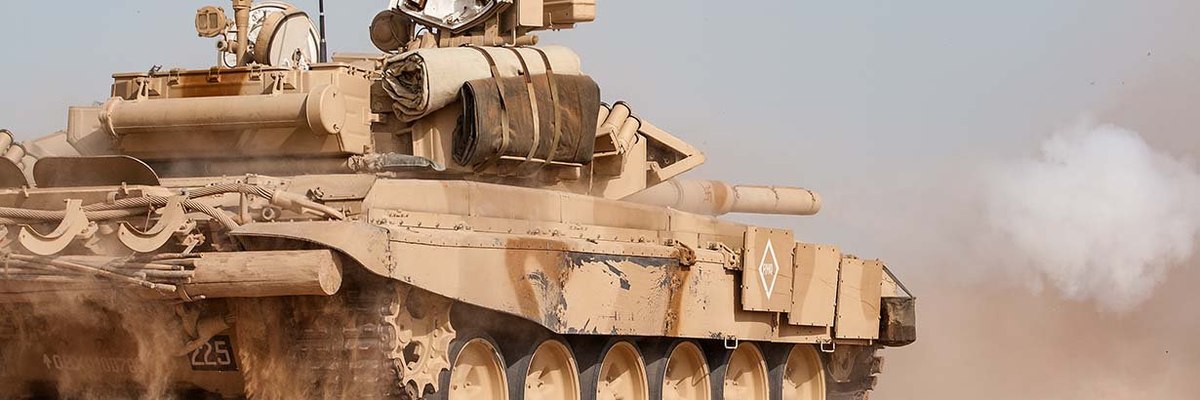The first part of the YouGov Study of War analyses the opinions of Britons about the chances of a global war taking place in the near future as well as the role of the United Nations and military alliances in preventing military conflicts.
It should be noted for posterity that the study was conducted from 14-18 April 2022, during the Russian invasion of Ukraine.
Six in ten Britons (61%) think that a major world conflict is likely in the next five years. A quarter (24%) think such a conflict is not likely, while 15% are not sure.
Looking forward to the next decade or two, 55% of Britons think that a big international conflict is likely within the next 10 years, and 24% think that it is not, while 53% think such an event will likely happen within the next 20 years and 21% think it will not.
Since its foundation in 1945, the United Nations (UN) has brought together countries to discuss common problems and find shared solutions with the aim of benefitting the whole world, with one goal being the prevention of war and conflict.
Half of Britons (49%), however, think that the UN has not been effective in preventing wars, with this view being most dominant among those 60 and above: 61% vs 36-48% in the younger generations.
A third of Britons (36%) think the UN has been successful in preventing wars, while 15% are not sure.
Most Conservative voters (55%) doubt the effectiveness of the UN in preventing wars, while this view is shared by 43% of Labour voters.
Approaching half of Britons (46%) would like to see the UN have more influence than it does now. This view is particularly prevalent among those who are aged 60 and older, of whom 62% would like the UN to have more influence.
Nine percent of Britons would like the UN to have less influence than now, while a fifth (19%) think it should remain unchanged. A quarter (27%) are undecided, with this climbing to 42% among the youngest Britons (16-24).
NATO – the military alliance made up of 30 countries primarily in Europe and North America – is currently the biggest military coalition on Earth.
Three in four (74%) Britons support its existence, including 42% who ‘strongly support’ it. Just 6% of Britons oppose the existence of NATO, while a fifth (20%) say they don’t know.
Support for NATO is significantly stronger among older generations: 89% of those over the age of 60 support the alliance, compared 53% of those aged 18-24. That is not to say that many young people oppose NATO – just 14% of the youngest age group do so, although this is still notably higher than among the oldest (3%).
The political breakdown shows that Conservative voters (87%) are more in favour of NATO than those who vote Labour (71%). One in five Labour voters (22%) say they oppose the existence of NATO, twice the number of Conservatives who say the same (10%).
In addition to NATO, there are other – notably smaller – military alliances operating in the world, such as the Collective Security Treaty Organization (CSTO) which brings together post-Soviet states, or the Shanghai Cooperation Organisation which includes China, Russia and India.
Half of Britons (48%) think that the existence of military alliances decreases the likelihood of war, while 13% think the opposite. A fifth of Britons (19%) think military alliances neither increase nor decrease the chances of war, while 20% are not sure.
The view that military coalitions lower rather than increase the chances of war is most prevalent among Britons who are 60 or older - 56%.
Among those who support the existence of NATO, 11% think military alliances increase the chances of wars, while this goes up to 37% among those who oppose the western alliance.
When asked specifically about NATO, 9% of Britons think its existence increases the chances of war taking place in the world, while 48% think it has the opposite effect. A quarter (23%) think that NATO neither increases nor decreases the chances of war, while 21% say they don’t know.
Among those who support the existence of NATO, 6% say it increases the chances of war, but among those who do not support the alliance this rises to 46%.
The war in Ukraine has sparked discussions on whether NATO should or should not get directly involved. Although deemed as a defensive alliance with the purpose of protecting its members from outside attack, NATO has in recent years taken military action in other countries, such as Iraq in 1991, Bosnia in 1993, Yugoslavia in 1999, Afghanistan in 2001 and Libya in 2011.
When asked how NATO should be used, six in ten Britons (60%) think the alliance should only act if a member nation is attacked.
However, 15% of Britons think NATO should be used also to attack countries that it considers a threat, regardless of whether they have or have not attacked a NATO member.
Six percent said that NATO shouldn’t act militarily in either of these cases, and one in five Britons (19%) say they ‘don’t know’.






